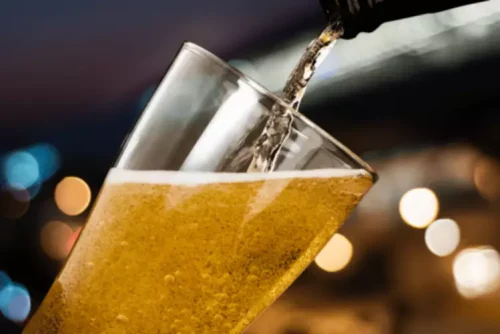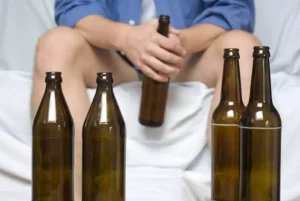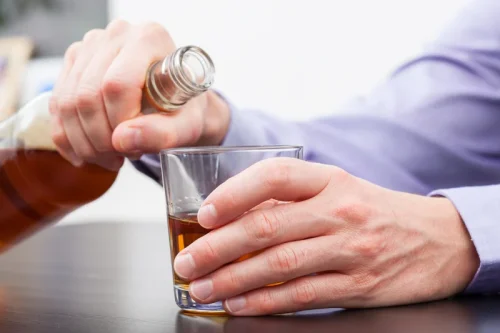
When triggers are avoided, a general sense of safety can provide the foundation for future growth. Safety is key to stability and when someone feels stable, they can begin to achieve other goals such as improving external triggers their physical, mental, and social health. Here are some essential practices to employ to begin identifying and managing triggers. Avoiding your triggers is the most effective way to avoid having PTSD symptoms.
How Do I Handle Addiction Triggers? (6 Tips)
- Fortunately, while there are several ways you may experience a trigger, there are also several ways you can positively cope with those triggers.
- By recognizing your triggers and where they are coming from, you can better manage them and prevent a potential relapse.
- Remind yourself not just to eat regularly, but to eat tasty nutritional meals.
- Find a convenient place to jot down your thoughts and feelings each day, reflecting on the moments that brought you joy or gratitude.
- The FHE Health team is committed to providing accurate information that adheres to the highest standards of writing.
People closest to the individual may set off cravings that eventually lead to a relapse. It is perilous for a person in recovery to be around substance-using friends and family. Offering alcohol to a former addict may trigger feelings that urge the individual to use drugs. Long-term drug use creates an association in the brain between daily routines and drug experiences.
Get started on the road to recovery
Engaging in activities that bring you joy is an excellent way to cope with triggers when they arise. There may be people in your life who consistently pressure you to drink or use drugs. Assertively communicate your need for sobriety and establish clear limits. It will help you maintain a safe environment that supports your recovery journey.
Relapse Triggers
To find another treatment program, browse the top-rated addiction treatment facilities in each state by visiting our homepage, or by viewing the SAMHSA Treatment Services Locator. It is possible to engage with people near you who are also going through the recovery process. Having people to relate to and share your story with can make all the difference. Rather than try to address each individual one, a helpful strategy may be to develop healthy ways of dealing with stress in general. No matter how lost you feel, you have the power to turn your life around.
Learn to Relax in Any Situation

The more strategies you have available to you, the better off you will be in managing your triggers. In addition, the more coping strategies you have, the more likely you will be able to prevent the development of unhealthy coping strategies, such as alcohol and drug use. A post-traumatic stress disorder (PTSD) trigger can include any sound, sight, smell, thought, or another reminder of a traumatic event. Such triggers are sometimes apparent, but they can also be subtle and more challenging to identify.
- Therapy is an essential step to learning to identify and manage your triggers.
- When you encounter these factors, they can cause you to crave drugs or alcohol.
- However, you can get through cravings for drugs or alcohol using one of many strategies.
- Try holding the Warrior II pose, which will help you find physical and emotional stability.
- Use this list to start thinking about what triggers you are likely to face in your recovery journey.
Managing Internal Triggers
The recovery journey can be a lonely one because you are addressing issues that other people around you may not need to address. Coping skills are techniques you use during the moment to deal with a stressful or difficult situation. Coping skills may not solve long-term problems, but they’ll assist with your deal with painful experiences, thoughts, or triggers that happen throughout the day. Get yourself a journal that you can put in a convenient place to write out your feelings daily. That simple habit of reflecting on what you’re grateful for can lead to a much happier and more content life.

Recognizing Relapse Triggers to Avoid Risky Situations
- Additionally, setting boundaries in relationships can help protect against overwhelming emotions that could lead to a relapse.
- Seeking professional help when faced with challenges during your recovery journey is paramount.
- In contrast, managing internal triggers may involve developing healthier coping mechanisms and seeking professional help to better understand and process negative emotions.
- Developing self-awareness, honing coping skills, and utilizing support systems are effective strategies for managing relapse triggers after exploring relapse and its coping strategies.
- Alternatively, it might require using strategies such as diverting your attention, reaching out for help, or engaging in mindfulness exercises when confronted with a potential trigger.
This may involve staying away from certain people and places, attending extra meetings or participating in an outpatient program. In addition to self-awareness and support, seeking professional help, like therapy or counseling from experts at Lantana, can also be beneficial in managing triggers and maintaining sobriety. Dealing with physical pain calls for the exploration of non-addictive pain management techniques and insistence on non-addictive prescriptions when necessary. By managing pain effectively without resorting to addictive substances, you can maintain your recovery and avoid relapse. Staying proactive by finding new, enjoyable activities and avoiding overwhelming feelings is an effective way to combat boredom.
Managing External Triggers
Understanding these risk factors will help you to avoid the potential risk of relapse during or following recovery. It can be hard to navigate your way through this state, and removing yourself physically may not always be an option. But one thing you can always do is ground yourself by balancing your physical energy, thoughts, and emotions, so you feel centered and safe in the moment. In the depths of substance use, you may have cut yourself off from friends and family, or they may have distanced themselves from you. However, when you choose recovery, you must not only rebuild the positive relationships damaged by SUD but also end relationships with people who could be a potential trigger. Mindfulness can take practice, but it can be a valuable tool when handling triggers.

Drugs and alcohol deprive the body of the essential nutrients it needs to function properly and can also increase or decrease appetite, which can snowball into further health concerns. When you aren’t fueling your body as you should, you can develop sleeping issues, headaches, and depleted energy. You may also find yourself feeling short-tempered, on edge, and emotionally unstable. When you are already struggling with regulating emotions, this can feel overwhelming.
If you have any questions or concerns, don’t hesitate to give us a call. Stressful situations or even holiday celebrations may trigger a recovering individual. Friends and family may encourage them to have a drink, unaware that this could lead to a relapse. When abusing drugs for an extended period, the brain creates an association between daily life and drug experience. They may suffer a drug or alcohol craving that’s uncontrollable when exposed to trigger cues.